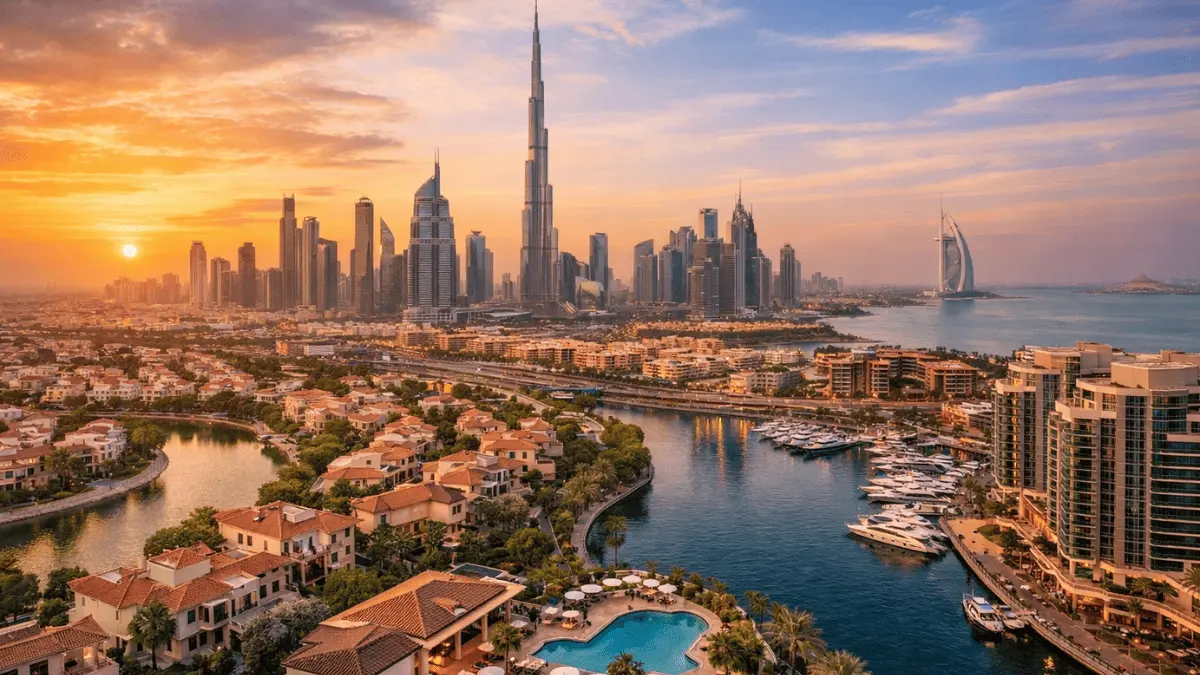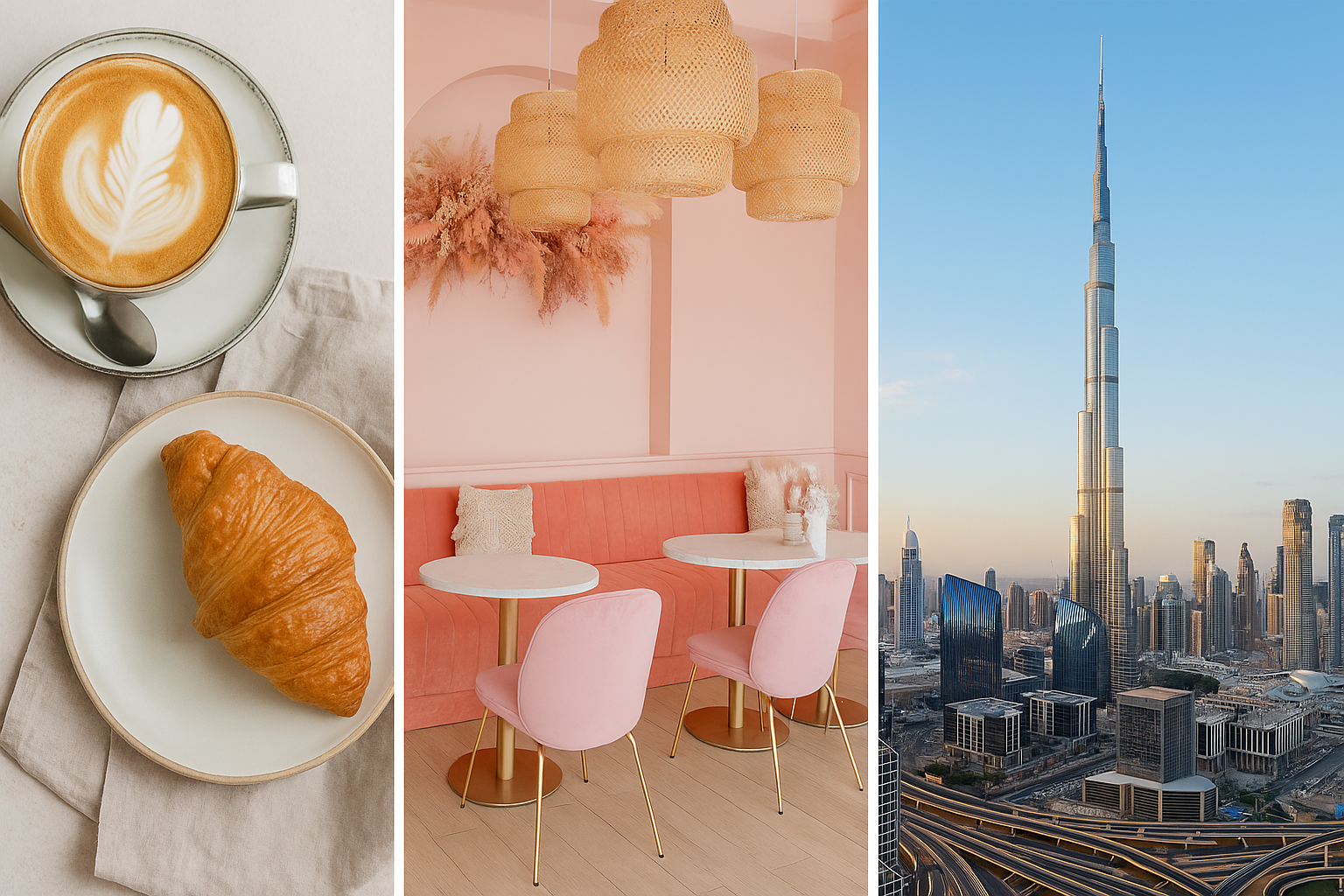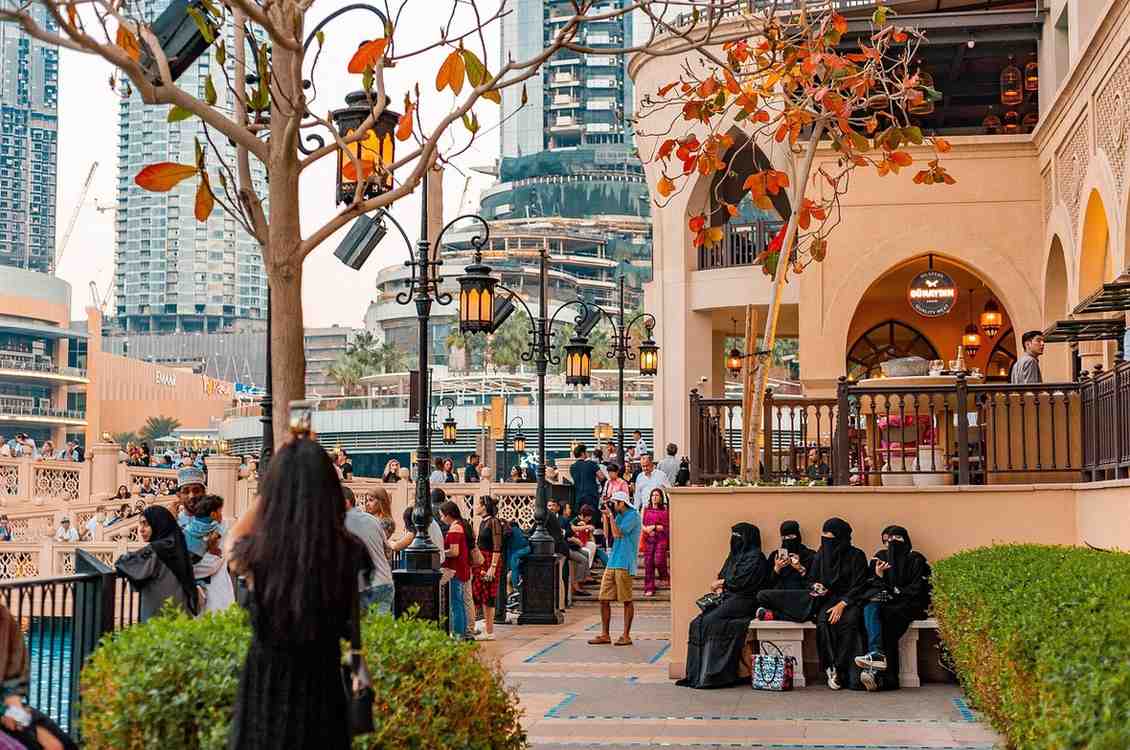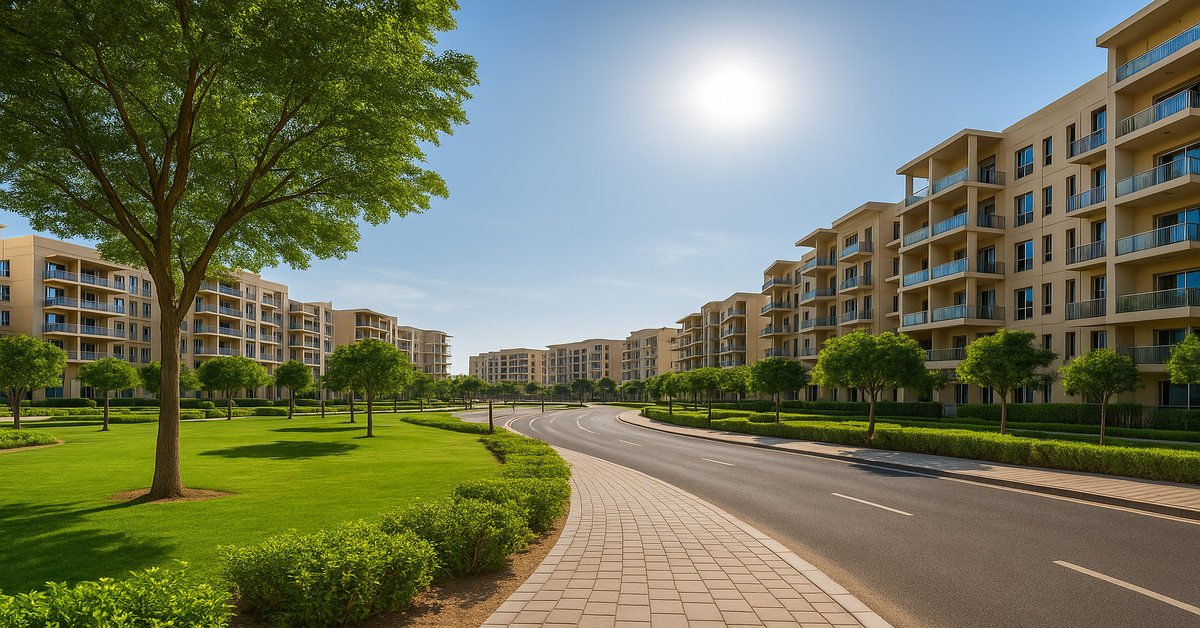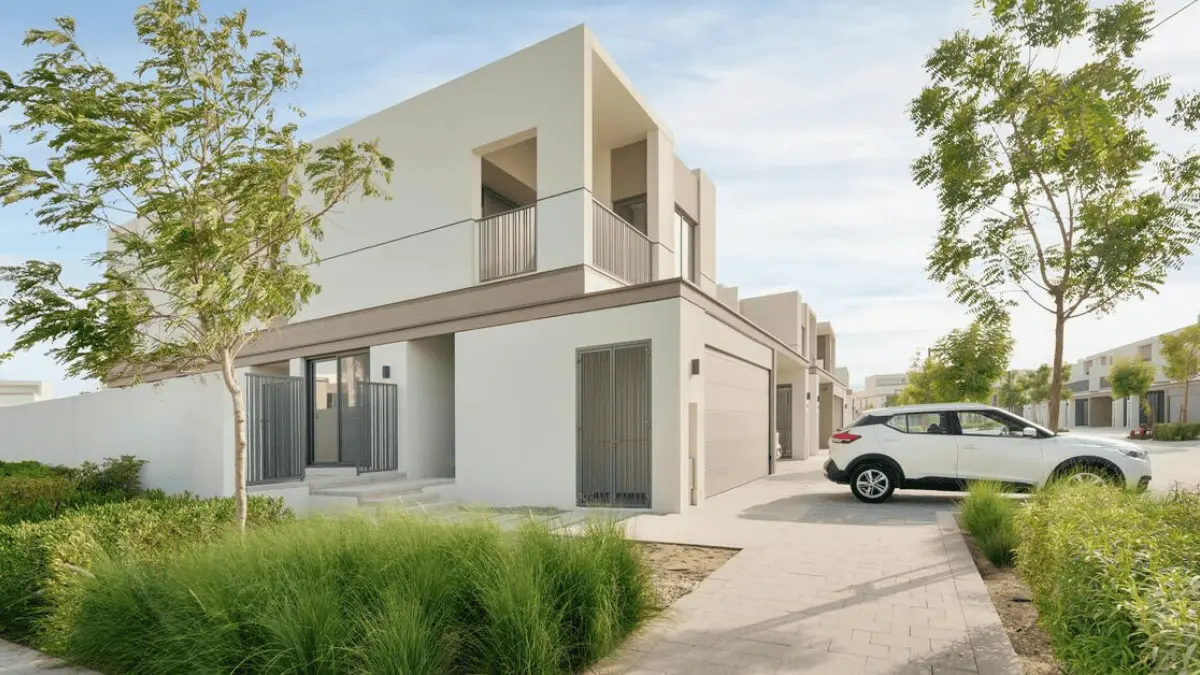Dubai’s glittering skyline and cosmopolitan lifestyle make it one of the most desirable real‑estate markets on the planet. The emirate has spent the past two decades crafting a legal framework that welcomes international investors with full ownership rights, transparent processes and no annual property tax.
If you are considering purchasing a home or an investment unit in Dubai. In that case, this guide will walk you through every step – from understanding freehold areas and mortgage options to securing a Golden Visa.
Can You Buy Property in Dubai as a Foreigner?
In the past, only UAE nationals could own land. Still, Dubai changed the game in 2002 by designating specific freehold areas where foreigners can buy property outright.
The UAE government confirms that foreigners and expatriate residents may acquire freehold ownership rights without restriction and may also opt for usufruct or leasehold rights up to 99 years. The Dubai Land Department issues title deeds, and there is no age limit for owning property.
Freehold ownership means the property and the proportionate share of the land are registered in your name, and you may sell, rent or bequeath it as you wish. Leasehold or usufruct arrangements typically grant rights for 50–99 years.
Because these options aren’t restricted by nationality, Dubai remains one of the most open real‑estate markets in the Middle East.
Where Can Foreigners Buy? Approved Freehold Zones
Dubai’s Real Property Law (Article 3 of Regulation No. 3 of 2006) lists the plots where non‑UAE nationals may hold freehold ownership. A 2025 overview by property‑management firm GuestReady breaks down the main freehold zones:
- Western Dubai: Dubai Marina, Palm Jumeirah and Al Barsha South 2–3. These waterfront and urban communities are popular with expats and provide high rental yields.
- Central Dubai: Sheikh Zayed Road, Al Jaddaf and Emirates Hills. Close to the city’s business districts, they appeal to professionals and families seeking an urban lifestyle.
- Eastern Dubai: Mirdif, Ras Al Khor and Al Quoz Industrial Area. These more affordable neighbourhoods offer room to grow and suit first‑time buyers.
- Southern Dubai: Jebel Ali, Palm Jebel Ali, Al Sufouh and The World Islands. These freehold zones include master‑planned developments and resort‑style living.
Outside these freehold zones, you can still buy property on a long‑term lease, but you don’t own the land. When choosing a location, consider proximity to workplaces, rental demand and the lifestyle on offer – from beachfront villas on Palm Jumeirah to high‑rise apartments in Business Bay.
Ready vs Off‑Plan Property: Which Is Better?
Dubai’s market offers both completed homes and off-plan (under-construction) units. Each has pros and cons:
Ready Property
- Move in or rent immediately. You can physically inspect the unit and take possession right after the transfer. The DLD trustee issues the title deed at the time of transfer, so your name is on the deed from the outset.
- Predictable costs. You pay the purchase price, the government fees and service charges, but there are no hidden taxes.
- Ideal for immediate residence or rental income. If you want to live in Dubai right away or generate rent, a finished property is the fastest route.
Off‑Plan Property
- Lower entry prices. Developers often offer discounted prices and flexible payment plans spread over construction milestones.
- Registered on Oqood. Your contract is registered with the Real Estate Regulatory Agency (RERA), and payments are protected in an escrow account approved by the regulator.
- Modern finishes and new communities. Off‑plan projects typically feature the latest designs, amenities and smart‑home features.
Tip: Always verify the developer’s RERA registration and confirm that your payments go into a government‑approved escrow account. This ensures the developer cannot access your funds until construction milestones are met.
What Does It Cost to Buy Property in Dubai?
Dubai doesn’t levy property taxes, but you’ll pay several one‑time fees when acquiring real estate. A 2025 tax guide from Strada states that Dubai does not impose annual property taxes on owners and lists the main costs:
Fee: Typical amount or rate. When it’s paid
Dubai Land Department (DLD) transfer fee: 4% of the purchase price, payable to DLD upon transferring ownership. Often split 50/50 by buyer and seller, but negotiable.
Real estate agent commission ≈is 5 % of the purchase price, paid upon signing the sales agreement.
Mortgage registration fee 0.25 % of the loan amount + AED 290 Paid if you finance the purchase with a mortgage.
Trustee office fee AED 2,000–4,000 + VAT Paid to the government‑authorised trustee who oversees the transaction.
Title deed issuance AED 250–580 Paid when your title deed is issued.
Developer NOC (for Resale) AED 500–5,000 Clearance certificate that the seller has settled service charges.
Service charges: AED 10–30 per sq ft per year. Annual fee for building maintenance and shared facilities.
For example, a 1.5 million AED apartment might incur roughly 95,000–100,000 AED in total fees. Once these are paid, there is no ongoing property tax – just annual service charges and utility bills (including a 5 % housing fee added to your DEWA bills).
Mortgages for Foreign Buyers
Banks in the UAE happily lend to expatriates, and the mortgage process is more straightforward than many assume. Luxury brokerage Sotheby’s International Realty explains that expats can borrow up to 80 % of a property’s value for homes priced under AED 5 million. Above this threshold, the maximum loan‑to‑value (LTV) drops to 70 %. For off‑plan properties, the LTV is capped at 50 % due to construction risk.
Most mortgages run up to 25 years. Banks require proof of income, bank statements, identification and a good credit history. Getting a pre‑approval letter before house‑hunting shows sellers you are a serious buyer and speeds up the process. Expats typically put down a deposit of 20 –30% of the purchase price. Mortgage registration with the DLD costs 0.25 % of the loan amount plus AED 290.
Step‑by‑Step: How to Buy Property in Dubai
1. Define Your Objective
Decide whether you’re buying in Dubai to live or purely as an investment. This affects the location, unit size and projected rental yields. Also, determine whether you want a ready unit or an off‑plan property.
2. Set Your Budget and Account for Fees
Add roughly 6–8 % to the purchase price for government and agent fees. If you plan to finance the purchase, ensure you have at least a 20 % deposit ready and funds for the registration fees.
3. Get Mortgage Pre‑Approval (Optional)
Approach a bank or mortgage broker for a pre‑approval letter. This document confirms how much the bank is willing to lend you and is usually valid for 60–90 days. Pre‑approval makes your offers more credible to sellers and developers.
4. Choose Your Freehold Area
Based on your lifestyle, budget and potential return on investment, select a community. Beachfront enthusiasts might prefer Palm Jumeirah, while urbanites gravitate to Downtown Dubai or Dubai Marina. Families often look at Mirdif or Emirates Hills, and investors eye high‑yielding locations like Business Bay.
5. Work With a RERA‑Licensed Agent
All real estate agents in Dubai must hold a license from the Real Estate Regulatory Agency (RERA). Ask to see your agent’s RERA card to ensure they are authorised. A good agent will help shortlist properties, negotiate prices and handle paperwork.
6. Make an Offer and Sign the MOU/SPA
Once you find the right property, submit a written offer. Once the price is agreed, both the buyer and the seller sign a Memorandum of Understanding (MOU) or a Sale and Purchase Agreement (SPA). At this stage, you pay a 10 % security deposit, which the agent often holds until the transfer.
7. Developer NOC (for Resale)
If you’re buying a resale unit, the seller must obtain a No Objection Certificate (NOC) from the developer. This document confirms that all service charges are up‑to‑date—the NOC fee ranges from AED 500 to 5,000.
8. Transfer at the DLD Trustee Office
On the transfer date, both parties (or their power‑of‑attorney representatives) meet at an authorised DLD trustee office. You pay the remaining purchase price, government fees, and the trustee’s fee. The trustee registers the transaction and issues your title deed on behalf of the Dubai Land Department. For mortgaged purchases, the bank issues a manager’s cheque for the loan amount.
9. Post‑Transfer Setup
After receiving your title deed, register utilities in your name with DEWA (Dubai Electricity & Water Authority). A 5% housing fee is added to your utility bill monthly (stradauae.com). Move in, lease your property, or keep it vacant – the choice is yours.
Get Your Golden Visa Through Real Estate Investment
One of the biggest perks of investing in Dubai property is the chance to obtain a long‑term residence visa. According to the UAE government, owning property worth at least AED 2 million can qualify you for a five‑year renewable Golden Visa, provided you supply a letter from the land department confirming the property value and, if financed, use approved local banks.
Tax advisory firm Greenback Tax Services notes that real‑estate investors who purchase property worth at least AED 2 million are eligible for a 10‑year renewable Golden Visa, and this can include off‑plan properties financed through local banks.
The visa lets you live, work and study in the UAE without a sponsor and allows you to sponsor family members. Golden Visa holders can also stay outside the UAE for extended periods without losing residency.
Taxes and Ongoing Expenses
Dubai remains extremely tax‑friendly compared with most global cities. There is no annual property tax, no capital gains tax, and no stamp duty. Instead, property owners pay:
- 4 % DLD fee when purchasing stradauae.com.
- 5 % housing fee added monthly to utility bills, calculated on the annual rental value.
- Service charges for building or community maintenance (varies by development). Check these before buying, as luxury communities can have higher fees.
- 5 % VAT on some services and on commercial property transactions over certain thresholds.
Landlords may be subject to rental income taxes in their home countries; consult a tax advisor if you reside outside the UAE.
Common Mistakes to Avoid When Buying Dubai Property
- Under‑budgeting for fees. Buyers often forget to account for the 4 % DLD fee, agent commission and trustee fees. Plan for roughly 6–8 % extra.
- Skipping escrow checks on off‑plan deals. Ensure the developer’s project is registered with RERA and that your payments go into a regulated escrow account.
- Ignoring service charges. Compare annual service fees between communities, as these can significantly affect your return on investment.
- Working with unlicensed brokers. Always check your agent’s RERA license to protect yourself from scams.
- Assuming property ownership automatically grants residency. You must apply for the Golden Visa separately through the DLD (General Directorate of Residency and Foreigners Affairs).
Frequently Asked Questions
Can I buy property in Dubai without living there?
Yes. All you need is a valid passport. Many foreign investors purchase remotely using a power of attorney or by delegating the closing process to a registered agent.
Are there annual property taxes?
No. Dubai does not levy yearly property taxes on residential real estate. You pay a one‑time transfer fee and ongoing service charges.
How long does the purchase process take?
Cash transactions can close in 3–7 days. Mortgage deals typically take 3–6 weeks, depending on how quickly the bank processes the loan and issues the NOC.
Can I buy a property from abroad?
Yes. You can complete the transaction remotely via the DLD’s electronic transfer service or by granting a power of attorney to a representative in Dubai.
Does property ownership guarantee residency?
Property ownership alone does not automatically grant residency. However, owning property worth at least AED 2 million qualifies you to apply for the 5‑ or 10‑year Golden Visa.
Buying property in Dubai is more straightforward than many expect. The emirate has a clear legal framework that allows foreigners to own real estate outright, with no age or residency restrictions, and a process designed to protect investors.
With no annual property tax, world‑class infrastructure and high rental yields, Dubai’s real‑estate market remains an attractive option for both lifestyle buyers and global investors. Take your time, do your due diligence, and work with licensed professionals – and you could soon be holding a title deed in one of the world’s most dynamic cities.



